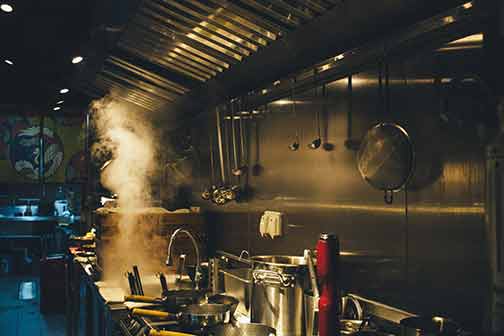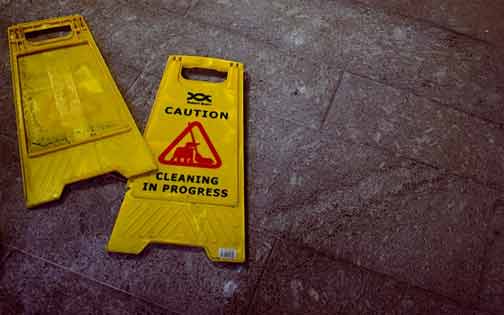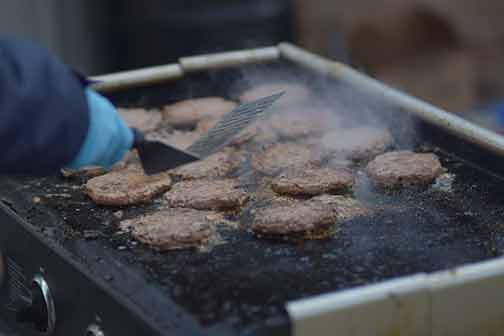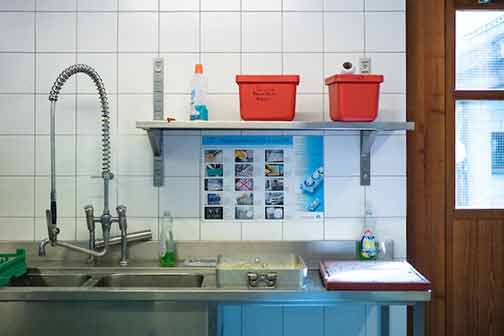
As a restaurant owner or manager, there are many things you need to consider to ensure the success of your business. One crucial aspect that is often overlooked is kitchen drainage. However, you can’t ignore drainage issues in your restaurant kitchen since they can cause significant expenses due to the associated legal and health regulations. This article will discuss the risks of ignoring drainage issues, common drainage issues in restaurant kitchens, and how to prevent them.
The Risks of Ignoring Drainage Issues
Ignoring drainage issues in your restaurant kitchen can lead to several health, legal, and financial risks. The exact health codes and regulations may vary from state to state. However, you should be mindful of the following risks.
Health Risks
If your restaurant kitchen has drainage issues, it can lead to significant health code violations. Here are a few examples of the associated health risks:
- Bacteria and mold growth – Standing water and moisture caused by drainage issues can create an ideal environment for bacteria and mold growth. These microorganisms can contaminate food, leading to food poisoning and other illnesses.
- Food contamination – If water from a clogged or slow drain backs up into the kitchen sink, it can contaminate the sink and surrounding areas. The contaminated areas can then contaminate food, utensils, and dishes, posing a significant health risk to customers.
- Slip and fall accidents – Water on the kitchen floor due to drainage issues can create a slip and fall hazard for your employees, which can cause injuries and lawsuits.

Drainage issues in your restaurant kitchen can lead to slips and falls.
Legal Risks
The health dangers posed by drainage issues can lead to legal complications. Ignoring these issues can also lead to the following legal risks:
- Fines and penalties – Local health and safety codes require restaurants to maintain proper drainage. Failure to comply with these regulations can result in fines and penalties.
- Lawsuits – If a customer or employee gets sick or injured due to drainage issues in your restaurant, they may file a lawsuit against you.
Financial Risks
When caught on time, most drainage issues can be solved without too much hassle or expense. However, ignoring drainage issues in your restaurant kitchen can also lead to financial risks, such as:
- Cost of repairs – If drainage issues are not addressed promptly, they can cause significant damage to your kitchen’s plumbing system. The cost of repairs can be substantial, which can hurt your bottom line.
- Loss of revenue – If your restaurant is shut down due to health or safety violations caused by drainage issues, it can result in a loss of revenue and damage to your restaurant’s reputation.

Grease buildup is one of the most common causes of clogged drains in restaurant kitchens.
Common Drainage Issues in Restaurant Kitchens
Now that we’ve discussed the risks of ignoring drainage issues, let’s explore some of the most common drainage issues in restaurant kitchens and their solutions.
Clogged Drains
Clogged drains are one of the most common issues restaurant kitchens face. They can be caused by food debris, grease, and other materials that accumulate in the drainpipe. Signs of a clogged drain include slow-draining sinks, foul odors, and gurgling sounds. To address clogged drains, you can use a plunger or a drain snake. You can also use a mixture of baking soda and vinegar to break up the clog. For severe clogs, you may need to call a professional plumber to clean the blockage in the drains.
Slow Drains
Slow drains are another common drainage issue. They are often caused by a buildup of grease and food particles in the drainpipe. Signs of slow drains include standing water in the sink and foul odors. The experts from Spyder Moving, who have experience with commercial moves, say that most of their clients opted to install grease traps to prevent these issues. If you are dealing with slow drains, use a drain cleaner or a mixture of baking soda and vinegar to break up the buildup. You can also hire a professional plumber to clean your drain pipes.
Foul Odors
Foul odors are a common drainage issue in restaurant kitchens. Due to the volume of food restaurants make and serve, foul odors are commonly caused by food debris, grease, and other materials accumulating in the drainpipe. Signs of foul odors include unpleasant smells coming from the sink or drain. To eliminate the odors, pour a baking soda and vinegar mixture down the drain. Regular cleaning and maintenance of the grease trap can also help prevent foul odors.

Clean your kitchen regularly to prevent drainage issues.
Preventing Drainage Issues in Restaurant Kitchens
Preventing drainage issues is key to avoiding the risks we discussed earlier. Here are some tips to help you prevent drainage issues in your restaurant kitchen:
- Train your staff – get your staff up to speed on the proper disposal of food waste and grease. Encourage them to scrape plates and pans before washing them.
- Install a grease trap – to prevent grease from entering the drainpipe. A grease trap should be installed and the grease trap cleaned regularly to prevent clogs and foul odors.
- Use drain covers –covers can catch food debris and prevent them from entering the drainpipe.
- Regular cleaning and maintenance – keeping your kitchen’s plumbing system in top shape can help prevent clogs, slow drains, and foul odors.
- Schedule regular plumbing inspections – these inspections can detect any potential drainage issues before they become major problems.
Remodeling Your Restaurant’s Kitchen
Remodeling a restaurant’s kitchen is a significant investment that can increase efficiency, productivity, and profitability. However, planning your kitchen remodel carefully is crucial to ensure that it meets your needs and budget. Remodeling your kitchen is an excellent opportunity to upgrade your plumbing and drainage systems and prevent future drainage problems. Consider hiring a professional plumber to inspect your drainage system and identify potential issues. By addressing drainage issues during your kitchen remodel, you can create a safe and hygienic environment for your staff and customers while improving the overall functionality of your kitchen.
Organizing a Commercial Move
Renovating your restaurant’s kitchen can be a stressful and overwhelming process. Perhaps you decided to renovate before moving in, or you might want to move your appliances and kitchen furniture out while the current renovations are ongoing. Either way, it’s essential to have a well-planned moving strategy to minimize downtime and avoid any potential damage to your equipment. When planning a commercial move for your restaurant, it’s crucial to explore budget-friendly options if you want to reduce commercial moving expenses. Consider hiring a professional moving company specializing in commercial moves and offering cost-effective moving solutions. By doing so, you can ensure a seamless move while keeping your costs under control.
The Bottom Line
In conclusion, drainage issues in your restaurant kitchen cannot be ignored. They can lead to health, legal, and financial risks and can harm your restaurant’s reputation. Common drainage issues in restaurant kitchens include clogged drains, slow drains, and foul odors. To prevent drainage issues, train your staff, have a grease trap installed if there isn’t one already, use drain covers, regularly clean and maintain your plumbing system, and schedule regular plumbing inspections. By following these tips, you can ensure the proper functioning of your restaurant’s plumbing system and the safety of your customers and employees.